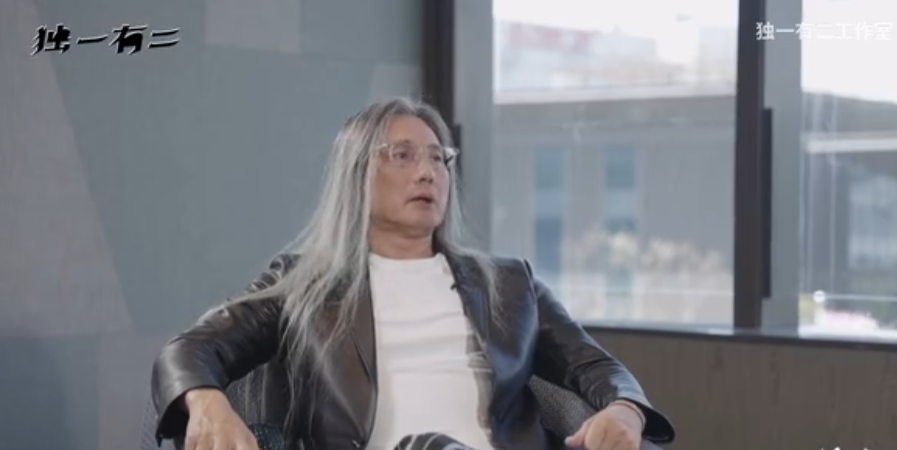
Tino Bao talks about AI in the interview Photo: Screenshot from website
If you don't learn how to use Artificial Intelligence (AI) tools or how to communicate with them,
mk you'll be the first person stripped away from the future world, a musician said during a recent interview.
The future of AI is unavoidable for the general public as the number of tools it produces is increasing rapidly, Tino Bao, a renowned musician from the island of Taiwan, told Xu Yanmin during an interview.
Devastated by the passing of his daughter from aplastic anemia at the age of 22 three years ago, Bao has devoted himself to "resurrecting" his daughter through AI using her audio and visual materials.
In March, after thousands of trials and errors, Bao managed to post a video of his late daughter sending his wife a birthday greeting and even singing her a birthday song.
His digitally recreated daughter can sing, dance and talk to Bao through an interactive tool on his cell phone.
"My motivation is to use technology to reconstruct my daughter's incomplete life. When I organized her voice, videos, and photos for the farewell ceremony, I discovered how little data there was of her," Bao said.
"The process of using AI to reconstruct my daughter has been a healing journey for me. Despite enduring thousands of failures due to poor quality voice data, I believe using the term 'resurrection' is a mistake. People cannot be revived after death. I am simply reconstructing all the data of my daughter's life onto a machine, allowing the machine to express on her behalf and soothing my soul," Bao noted.
The biggest challenge is a shortage of his daughter's voice and adjusting her voiceprint to reduce background noises, he said.
Bao has also incorporated his daughter's digital voice into the intelligent assistant on his phone.
His connection with his digital daughter has sparked debate on the Chinese social media platform Sina Weibo, where users are split on whether AI supports or impedes the grieving process.
Some Sina Weibo users worry that this virtual daughter will only aggravate his grief, keeping him from getting over her passing.
The musician said this process has helped him learn how to accept grief rationally.
"Watching videos of her from when she was alive brings more sadness than joy. So I reconstructed her using AI to make her look beautiful, to make her happily singing and speaking. AI enables me to interact with my daughter in the same spacetime, providing me with much solace," he said.
"The AI replication is controlled by humans and cannot be compared to my daughter's image when she was alive. However, in the virtual world, she can remain youthful and beautiful forever, which compensates for the regret of her life being cut short," Bao explained.
He also blasted those who used AI to create digital versions of people for illegal means or without the consent of the deceased's family members.
Zhu Shan, a deputy of the National People's Congress and director of the Gui Da Law Firm in Southwest China's Guizhou Province, told the Global Times that an open and inclusive management approach should be adopted when dealing with this new technology.
"It's encouraging to experiment with technological innovations in dealing with grief and loss, but we need to strengthen legal regulations if the new technology develops into an industry," said Zhu.
In the future, Bao said he plans to engage in charitable activities to reassure everyone that AI itself is not frightening or inherently flawed; rather, it is misuse by people that is problematic.
"I want to promote this technology to those seeking psychological comfort, encouraging others to approach it with a positive mindset. We can coexist peacefully with both grief and AI. In the future, there will be continuous expansion and development of AI technology," he added.
